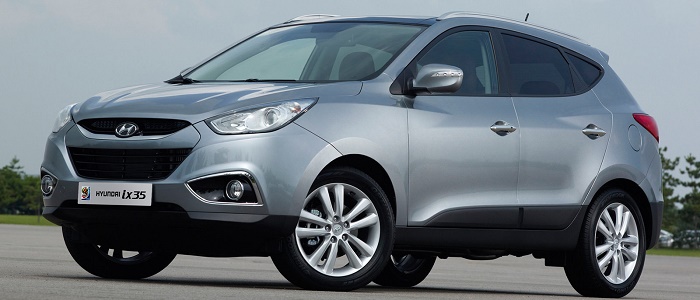





Basic info on Hyundai ix35 2.0i CVVT 2WD
The Korean car was first shown in year 2010 and powered by a 4 - cylinder nat. asp. petrol unit, produced by Hyundai. The engine offers a displacement of 2.0 litre matched to a front wheel drive system and a manual gearbox with 5 or a automatic gearbox with 6 gears. Vehicle in question is a suv with the top speed of 184km/h, reaching the 100km/h (62mph) mark in 10.4s and consuming around 7.5 liters of fuel every 100 kilometers.
Data

Check vehicle history
Performance
emission
Ecategory
5 gears
average
7.5l/100km
emission
Ecategory
6 gears
average
7.9l/100km
Pros & Cons compared to direct rivals
Safety results for Hyundai ix35

Other cars that might interest you...
acceleration
slower
consumption
lower
power
lower
length
shorter
weight
lower
fuel tank
larger
boot
smaller
boot ext.
smaller
price
lower
acceleration
slower
consumption
lower
power
lower
length
shorter
weight
lower
fuel tank
smaller
boot
smaller
boot ext.
larger
price
lower
acceleration
equal
consumption
equal
power
lower
length
longer
weight
equal
fuel tank
larger
boot
smaller
boot ext.
smaller
price
higher
acceleration
faster
consumption
higher
power
higher
length
longer
weight
higher
fuel tank
larger
boot
smaller
boot ext.
smaller
price
higher
acceleration
slower
consumption
higher
power
lower
length
longer
weight
equal
fuel tank
larger
boot
smaller
boot ext.
larger
price
lower










